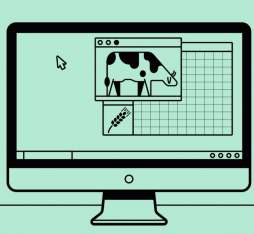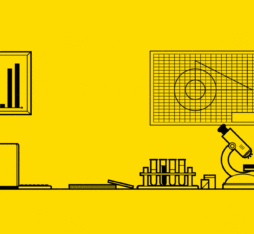In addition to their ability to innovate, through their choices, humans are able to destroy or create the building bricks of the society in which they wish to evolve.
The risk of immediacy
Why are we so eager to have a consumer product delivered within two hours? Is spending time and waiting really an endangered concept? According to Denis Jacquet, we have reached the climax of the consumer society where everyone not only wants to have things (which are often useless), but wants to have them as quickly as possible.
Through their decisions alone, consumers are capable of destroying or creating. Anticipating, understanding and acting or letting things happen… these are the challenges facing us today as we decide which model of society we want. You need to stop surfing the index on the screen to see what’s going on behind it!
“A common foundation unites us; we must use it to create this society and not sacrifice our free will.”
He highlights the responsibility of consumers who choose an application that provides a speedy delivery at the lowest possible price by employing (although what contract does a robot need?) drones to deliver their products, rather than delivery drivers. Autonomous cars instead of drivers. And ever cheaper, with ever less protection. The insatiable need for immediacy could have an impact on the future job market. Denis Jacquet also criticises this culture of purchasing power that inevitably produces a “culture of unemployment” by dragging everything down.
He also invites us to rethink our uses because for him “it is not the tools that make men, but it is men who must master the tools to achieve a goal, a vision of society.”
The need to make societal choices, for better or for worse?
Denis Jacquet urges us to think about the meaning we want to give to change. According to him, “we must not reject change, but we must understand that change only becomes progress when it is beneficial for humanity”.
It is no coincidence that “ethical business” is progressing. Today, the era of the consumer society of the thirty years following the end of the Second World War (Les Trente Glorieuses), when the environmental and ethical criteria of our consumption did not come into play, seems to be losing momentum. Nowadays, a new generation of consumer-actors promote responsible – and ethical – consumption. The act of consuming can therefore become a statement for a certain choice of society. But it takes resources to have this consciousness, so it is a collective affair.
Thus, making the choice to pay the price it takes to obtain quality is also about “learning to pay for a service at its fair value”. Especially since “a company that relies on quality is a company that looks to the future. Quality is a margin, a margin is an investment, and an investment is employment”, explains Denis Jacquet.
It all depends on the choice we make and the goal we pursue.
“My fear is that, by wanting to make an augmented man, one makes a diminished humanity.”
Distancing ourselves from our obsession with technology is essential. What meaning should we give to this change so that it becomes real progress? A use being digital and connected does not in itself give it reason to be.
A good question to ask yourself: why do we innovate?
In order to compete with the American GAFA or Chinese BATX, Denis Jacquet recommends two lines of action: creating intelligent protection for our start-ups and SMEs while they grow, and linking Africa and Europe by investing heavily in these “champions”. Collaborating with Africa to innovate is a way of connecting with a sense of growth and youth that we no longer have, and of better distributing wealth. Complementarity between Europe and Africa would achieve the ambition of using technology for the service of humankind. Such an initiative would put a “humanist” model of society at the centre of the game, starting from an informed collective choice.
Finally, Denis Jacquet emphasises the concept of collective responsibility, because digital progresses through our use choices without considering the society we are building. These choices are expressed on a personal level, while proposing a model depends on the collective will.
And just what kind of future model of society do we want? What objective do we seek for innovation in our societies? It’s up to us to “take charge”, to rethink the work, sharing, uses and meaning given to innovation. “Let’s help alternative models to emerge”. And then let us take risks to achieve them. We must remember that those who never take risks rarely achieve success.











